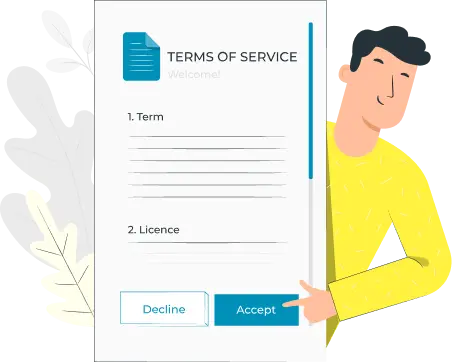A work visa is an official authorization that allows foreign professionals to legally live and work in a Southeast Asian country for a set period of time. Each country in SEA has its own rules, processes, and eligibility requirements, making work visas a critical part of cross-border hiring and compliance. For employers, understanding these differences is essential to successfully hire and retain talent across the region.
Firms must acquire the appropriate work visa before they can make a foreign talent employment. If not, they risk facing fines, reputational damage, or even future recruitment bans. In Southeast Asia, compliance also protects long-term access to local labor markets.
Work visas enable the importation of best talent from across SEA and the globe. This enables businesses to have access to special skills that can be hard to find locally, such as tech engineers in Vietnam or digital marketers in Indonesia. With talent gaps addressed, businesses are able to spur innovation and growth.
Visa sponsorship signals to employees that the organization values their work and is prepared to sponsor them. This assurance instills confidence and encourages reduced turnover because employees feel more at ease in their jobs. Visa support is also a deciding factor in making a choice concerning employers for international professionals.
For SEA scale-ups, work visas play a pivotal role in moving personnel from office to new markets. They allow companies to send leadership teams or technical experts to where they're needed most. This adaptability allows for faster growth and easy market entry plans.
Most SEA countries, like Singapore, Malaysia, and Indonesia, require employer sponsorship. The firm that employs the employee is legally responsible for the employee's status, and in most cases, must make the approval requests before permitting the employee to apply. In Indonesia, this means getting the RPTKA (Expatriate Placement Plan) before a KITAS can be issued.
An official job offer or contract of employment is required for nearly all visas in the area. Singapore and Malaysia, for example, require certain job title and salary details to be included with the application. This serves to guarantee that the scale of the position offered matches the category of visa.
Applicants normally have to submit diplomas, certificates, and employment reference letters. Singapore employs salary levels to ensure that only qualified professionals come in under the Employment Pass. Vietnam requires proof of three years of experience, if the job does not necessitate a university degree.
Medical screenings are compulsory in most countries. Indonesia requires medical fitness certificates, while Vietnam requires medical tests conducted the year before. The Philippines often requires police clearance from the native country as well as local background screening.
Employment Pass (EP) for professionals, S Pass for mid-skilled workers, Dependant’s Pass for family members.
KITAS (Temporary Stay Permit) for foreign employees, KITAP (Permanent Stay Permit) for long-term workers, with employer RPTKA approval required first.
Employment Pass divided into Category I, II, and III depending on salary and contract length; Professional Visit Pass for short-term assignments.
Work Permit required for foreign employees staying over 3 months; Temporary Residence Card issued for longer stays linked to work permits.
Alien Employment Permit (AEP) required for most foreign workers; Special Work Permit (SWP) available for seasonal or project-based roles.
Companies must establish clear guidelines, provide detailed project briefs, and maintain open communication channels. This ensures that the contractor's work aligns with the company's quality standards.
SEA immigration regulations are not harmonized and continually evolve. For example, Singapore Employment Pass salary thresholds are updated periodically, and Malaysia updates requirements by sector. Staying informed is critical to avoid disruptions.
Approvals can be weeks or even months, depending on the nation. Vietnam work permits often involve multiple layers of checking, and Indonesia's KITAS involves more than one government agency. Be affected by these processing times if not planned for early.
Employers are required to gather documents, pay fees, and manage renewals. For smaller companies expanding into new markets, this level of work can be overwhelming. Without experience, even small errors can lead to rejections.
Visa restrictions can constrain employment mobility or family organization. For example, relatives typically require separate dependent visas, and in some countries, these applications are as complex as the primary visa. This uncertainty can affect an employee's willingness to relocate.
Initiate visa applications several months before the intended hire date. In countries like Vietnam or Indonesia, where approvals are multi-step procedures, buffer time ensures workers are ready when needed. Early planning reduces project delay and complies.
It is possible to have EOR providers or immigration consultants process applications on your behalf. In SEA's patchwork regulation structure, engaging local experts reduces risk and administrative hassle. It is especially useful when hiring in multiple countries at the same time.
Local governments frequently modify visa policies in order to protect local employment markets. Monitoring updates — such as new salary bands in Singapore or new quotas in Malaysia — keeps your talent plan current.
Provide candidates with clear timelines, lists of documentation, and information on family visa possibilities. Clarity builds confidence and eases relocation, so that employees can feel looked after throughout the process.
Disclaimer: This article and all information in it is provided for general informational purposes only. It does not, and is not intended to, constitute legal or tax advice. You should consult with a qualified legal or tax professional for advice regarding any legal or tax matter and prior to acting (or refraining from acting) on the basis of any information provided on this website.
Choose Glints TalentHub as your partner in Southeast Asia.
Building your Team in
Southeast Asia with Glints' EOR Service

Rapid
Team Setup
Launch Southeast Asian operations in a week for a seamless start

Full Suite of HR Offerings
Launch Southeast Asian operations in a week for a seamless start

Guaranteed 100% Compliance
Ensure total HR and legal compliance with expert local guidance

Dedicated & Immediate Support
Get quick, dedicated HR support within 24 hours